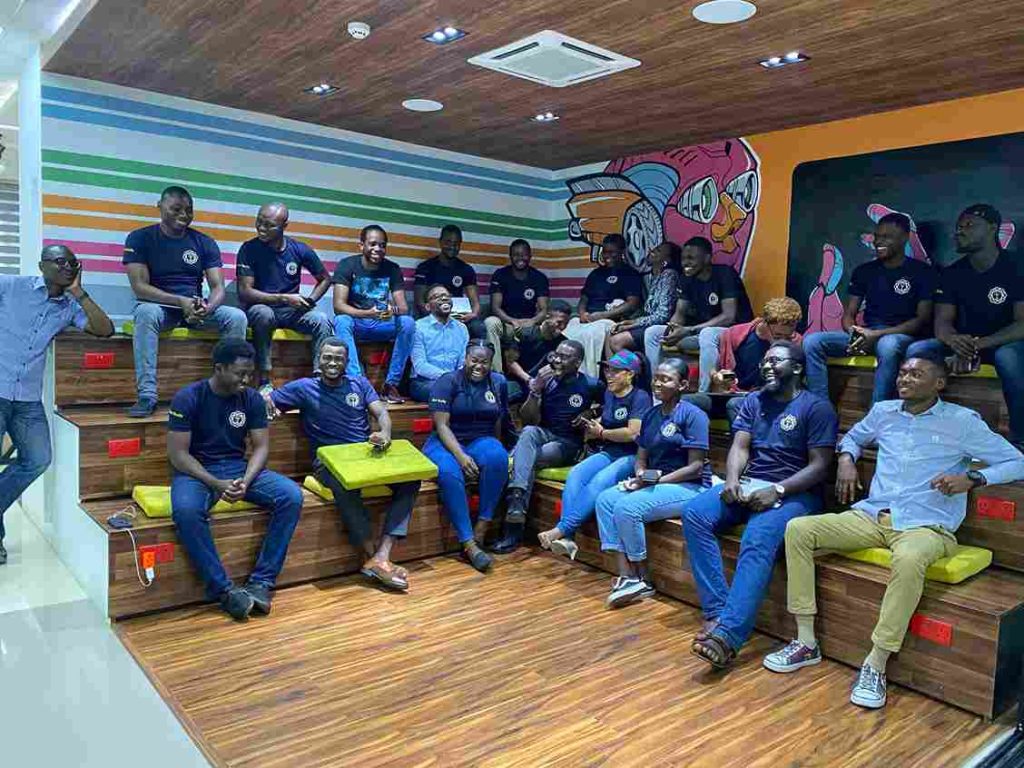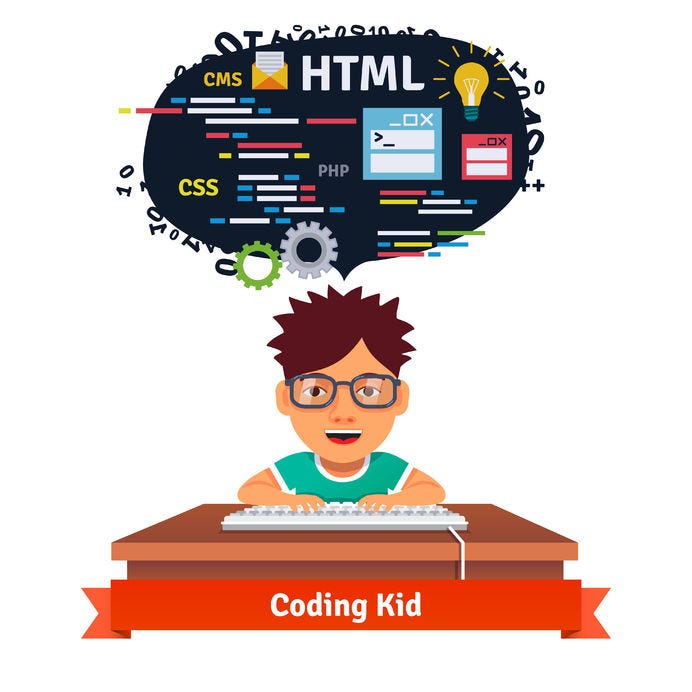Unlike any other job interview, a technical interview is a rigorous process that tests your problem-solving abilities, coding skills, and so much more.
Thus, it’s easy to become overwhelmed and anxious about the entire process and, consequently, perform poorly. This is particularly true for first-time interviewees or people who are generally nervous about meetings.
However, regardless of how daunting technical interviews may seem, it can get easier with the right preparation. By following the proper steps before, during, and after the interview, your chances of landing the job will go through the roof.
Stages of Technical Interviews
While the interview process is not uniform across different companies, the average technical interview begins with a phone screen stage where recruiters try to determine if an applicant is qualified enough for the next stage,
The next stage, known as the remote coding interview, involves a preliminary test of your coding skills which is done over applications like Zoom or as a homework assignment.
The final stage is the onsite interview/whiteboard challenge. This stage is known to be the most critical and frightening stage for most interviewees. Thus, in this article, we will reveal 14 incredible steps to ace your next onsite interview and get your dream tech job in 2021.
Before the Interview
-
Study the most crucial Computer Science fundamentals

While you shouldn’t try to read everything, it is vital to study and brush up on key technical interview skills. Naturally, the role you’re interviewing for will guide your study topics.
But generally, you would want to study data structures and algorithms while running a lot of practice problems. Key areas you should consider studying include Big O Notation, Hash tables, dynamic programming etc.
-
Pick one programming language and know it very well
Usually, companies let you choose the programming language you’d like to use to solve their questions. Hence, it is important to have strong knowledge of at least one programming language. Consider Python, Ruby, C, C++, Ruby, and Java when choosing what to specialize in.
-
Prepare for scenario-based questions
Scenario-based questions might be generally dreaded, but they are still quite common. The average scenario-based question involves a coding problem that you must solve on a piece of paper or whiteboard.
These kinds of questions are tricky as they require manually writing rather than employing the help of a compiler or IDE. Hence, it is crucial to research and practice typical whiteboard scenario-based questions using paper and under timed conditions.
However, it is essential to note that failing the question doesn’t automatically disqualify you, as the end goal of scenario-based questions and technical interviews, in general, is for the recruiter to analyse your ability to solve problems under pressure as well as your thought process.
-
Prepare for competency-based questions
Competency-based questions are questions that are generated from your past projects and achievements. For example, if your CV mentions a time when you built a gaming app from scratch, the recruiter might ask you to give an overview of the whole process, the challenges you faced, how you overcame them, etc.
For questions like these, you may consider starting by describing the situation, then work your way up to the task, action, and results.
This is another reason why studying the job description and aligning them with your experience is crucial, as it will help you prepare for any possible competency-based questions.
Click here if you’re looking to build a successful career in tech within 4 – 6 months.
-
Prepare a structure or format to deconstruct questions
As mentioned at the beginning of this article, technical interviews can be a very rigorous process. Recruiters tend to ask questions that can’t be solved immediately, hence, the need to create a strategy to deconstruct questions. This will make it easy to figure out difficult questions without feeling anxious.
Consider trying to understand the problem first, then work up to the test cases, data structure, algorithms, and finally, code. Research and ask industry peers and leaders on methods that work best.
-
Prepare questions for your interviewers
To conclude an interview, recruiters tend to give the interviewee the opportunity to ask any questions regarding the role or company.
Recruiters expect informed and strategic questions that reflect that the interviewee is genuinely interested in becoming a part of the organization.
Thus, it is important to ardently prepare questions in advance on vital information you might be curious about. You may ask about professional development, goals, company culture, etc.
-
Conduct regular coding practice/challenges

As you already know, practice definitely puts you on the path of progress and perfection. Before setting out for the interview, make sure to practice with a mentor or study buddy.
Research and outline the scenario-based, competency-based, technical questions and other prospective questions the recruiter might ask and create the right interview scenario in your home.
Practice coding by hand on a piece of paper or whiteboard and attempt 2–3 coding interview questions per day. Do this under timed conditions to create a more realistic scenario and get yourself used to working under pressure.
-
Go with copies of your CV, portfolio, and other relevant writing materials
Thanks to technology, some companies no longer ask for hard copies of your CV as they already have softcopies. They also tend to prefer links to your online portfolio to a piece of paper.
However, to be on the safe side and show some level of seriousness, it is strongly advised to have at least three hard copies of your CV and at least one copy of your portfolio before heading out for the interview.
You should have a list of references, pens, notes and other documents your recruiter may have specified for. This will show the recruiter how prepared you are, boosting your chances of landing the job.
During the Interview
-
Be Punctual
Arriving early to an interview is the right first impression and shows how committed you are to your job. If you’re uncertain about where the organization is located, we recommend tracking it down a day or two before the interview.
If you live in a traffic-congested city, it is best to leave as early as possible. Typically, you should aim to arrive at least 15 minutes early.
Arriving early doesn’t just send out a good impression, it also gives you enough time to revise everything you’ve learned for the interview.
However, if you arrive too early, avoid waiting at the reception, as you don’t want to interrupt the recruiter’s schedule or seem desperate. Instead, find a quiet place nearby to wait and make final preparations.
-
Dress appropriately
It is important to note that everything about you is analyzed during interviews. From your behavior to the way you answer questions and of course, the way you dress isn’t left out! Be sure to dress appropriately to make a positive and lasting impression on the hiring team.
While most tech companies today go for an informal dress code, giving employees the freedom to wear whatever they see fit, we recommend wearing a casual business outfit or a formal suit to be on the safe side.
This is another reason we recommend conducting extensive research on the company as it would guide your choice of outfit. Ultimately, the goal here is to look clean, groomed, and smart.
-
Be confident

While the right preparation helps you perform better during interviews, some people may still find it difficult to shake off some pre-interview jitters.
On the morning of your interview, try going for a run, meditating, writing, or any other activity that would help you calm your nerves. Eat foods that help with anxiety, such as salmon, banana, and yogurt. We also recommend swapping coffee for green tea.
During the interview, endeavor to make eye contact with members of the hiring team, avoid speaking too fast, and don’t interrupt the interviewer. Talk calmly and succinctly as it would show you’ll feel comfortable talking to future co-workers and clients.
Be conscious of your body language; sit up, smile, and don’t fidget. To avoid fiddling with your tie, hair, or object, be sure to keep your hands on the table.
-
Understand the question
When presented with a question or problem, never be in a hurry to rush into it, as your approach to answering the question will make or break your chances of landing the job. Take your time to understand the problem and ask questions if necessary.
Ask about anything from intended program behaviors to edge cases. Additionally, you might get hints from the interviewer, which will help you navigate the problem! Gaining proper clarity will boost your critical thinking skills and improve your chances of solving the problem correctly.
Click here if you want to become a TECH BRO/SIS & start EARNING BIG
-
Explain your approach
As mentioned earlier, recruiters are always more interested in “how” you solve a problem than your results. Explaining your approach helps interviews understand the thought process behind your solution.
In this situation, you may choose to explain as you solve the problem or explain when you’re done. It is best to go with the option you’re most comfortable with to help you focus better.
However, because many technical interview problems are designed not to have easy answers, it is generally advised to think aloud as you attempt the problem, as this will give the recruiter a window into your thought process.
After the Interview
-
Follow up
Most people know that what you do before and during the interview significantly improves your chances of landing the job. However, many people still don’t know how effective a simple follow-up email after the interview can be.
Sending a “thank you” email to the hiring team within 24 to 48 hours after the interview increases your chances of actually getting the job. Be sure to mention your interest in the role, the knowledge you may have gained from speaking with them, and your gratitude for the interview.
If you don’t hear back from the hiring team after a week, send another follow-up email to reiterate your interest in the position and ask about the next steps.
Conclusion
Technical interviews can be a lot to handle, especially if it happens to be your ideal job as well. To help with any pre-interview jitters, take a breather at strategic times, especially the night before the interview. Stick to our recommendations, and you are well on your way to landing that dream tech job!


